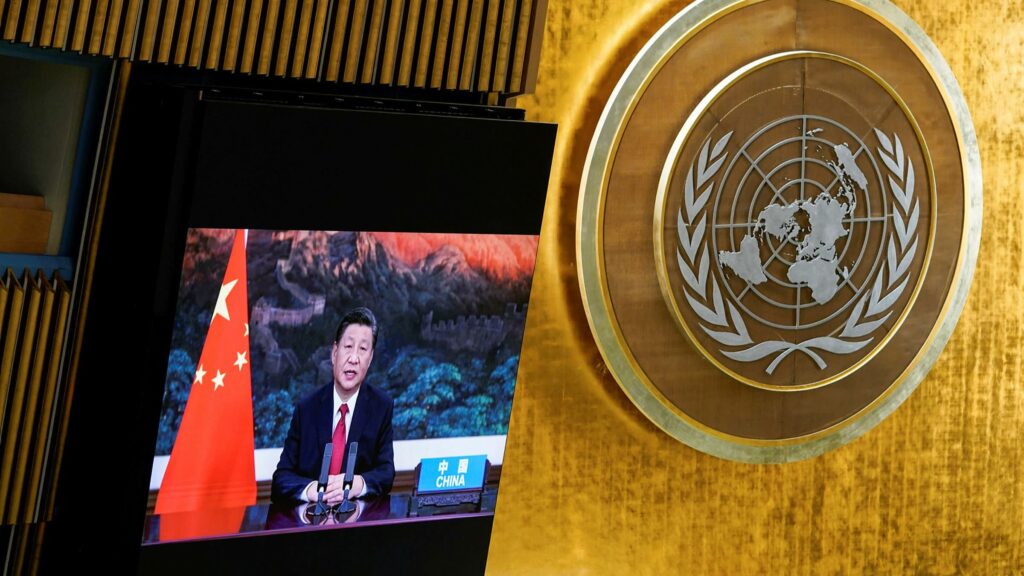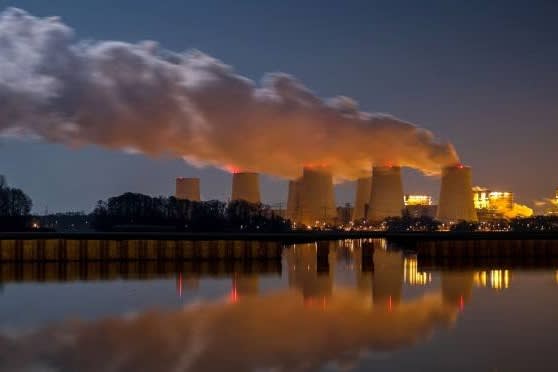US and China climate commitments raise hopes ahead of COP26 summit

COP26 updates
Sign up to myFT Daily Digest to be the first to know about COP26 news.
Progress at this week’s UN General Assembly has left climate negotiators more hopeful for the COP26 summit in Glasgow, after significant climate commitments from both China and the US.
A surprise announcement from President Xi Jinping that China would end funding for international coal power plants, combined with a fresh pledge from President Joe Biden to double US climate aid, have injected a rare note of optimism into fraught climate negotiations, just five weeks ahead of the Glasgow summit.
The new funding from the US, which will contribute $11.4bn annually by 2024, was hailed by climate groups as a “welcome and much-needed” signal that would help to unlock some of the thornier negotiation issues at COP26.
“It’s a very significant step forward,” said Peter Betts, former lead climate negotiator for the EU and UK, referring to the US finance announcement. “Getting that done and clear before COP was important.”
A pledge by rich countries to pay $100bn annually in climate finance to developing countries by 2020 — a target that has not been met — has been a main sticking point ahead of COP26, particularly for vulnerable countries that say rich countries are not doing their share.
But the new US funding could put the $100bn target within reach — providing Biden can win congressional approval for his financial commitment.
As about 100 leaders convened in person in New York, and dozens more made a virtual appearance, the climate announcements were a bright spot in a week dominated by conflict over a range of issues, from the coronavirus pandemic to Afghanistan and the Aukus submarine deal.
Xi surprised his audience on Tuesday when he announced that China would completely end its funding for international coal power plants. This was a boost for COP26 and its president, Alok Sharma, who has said he wanted to use the summit to “consign coal to history”.
China, the world’s largest emitter and biggest builder of new coal plants, has been under international pressure to halt its support for coal construction projects. Beijing will soon outline a detailed plan for reaching its carbon dioxide target, which is for emissions to peak before 2030.
Under the new policy, Beijing will stop about 50GW of planned overseas projects, according to calculations by the Center for Research on Energy and Clean Air — the equivalent of the annual emissions of Spain.
Lauri Myllyvirta, an analyst at the Center for Research on Energy and Clean Air think-tank, said international financing for new coal plants was in effect over, as China’s pledge follows similar commitments from other coal funders including Japan and South Korea.
“New coal outside China is done,” he said. Indonesia, Pakistan, Vietnam and Bangladesh, which have in the past relied on international financing for their coal plants, would be among those most affected.
China’s announcement was “further evidence that coal is on its way out, which is welcome news”, said Tina Stege, climate envoy for the Marshall Islands, which are threatened by rising sea levels. “Ending coal financing at home and abroad is low-hanging fruit,” she added.
Stege was among those to join a closed-door roundtable of leaders chaired by UN secretary-general António Guterres earlier in the week, where discussions were “very frank”. Many leaders said “the time for diplomacy is long past and we need action”, she recalled.
Officials from a number of developing countries welcomed events in New York. Simon Stiell, environment minister of Grenada, which faces the threat of hurricanes and storms as a result of global warming, said he “appreciated” China had “lived up to the promise they made this April” to start phasing out coal use. A recent deal between the US and EU to cut their methane emissions by 30 per cent by 2030 will also help tackle climate change.
Others pointed out that countries still had big differences ahead of the Glasgow gathering, including how they would report emissions and how to create global carbon markets — issues that will be on the COP26 agenda.
Because the climate summit operates by consensus, all 191 parties to the 2015 Paris climate accord have to reach total agreement as they work to iron out the details that govern how the Paris accord is implemented.
All the countries that signed the deal are supposed to submit updated pledges ahead of COP26, but UN analysis last week found only 113 had so far done so.
Follow @ftclimate on Instagram
Climate Capital

Where climate change meets business, markets and politics. Explore the FT’s coverage here.
Are you curious about the FT’s environmental sustainability commitments? Find out more about our science-based targets here